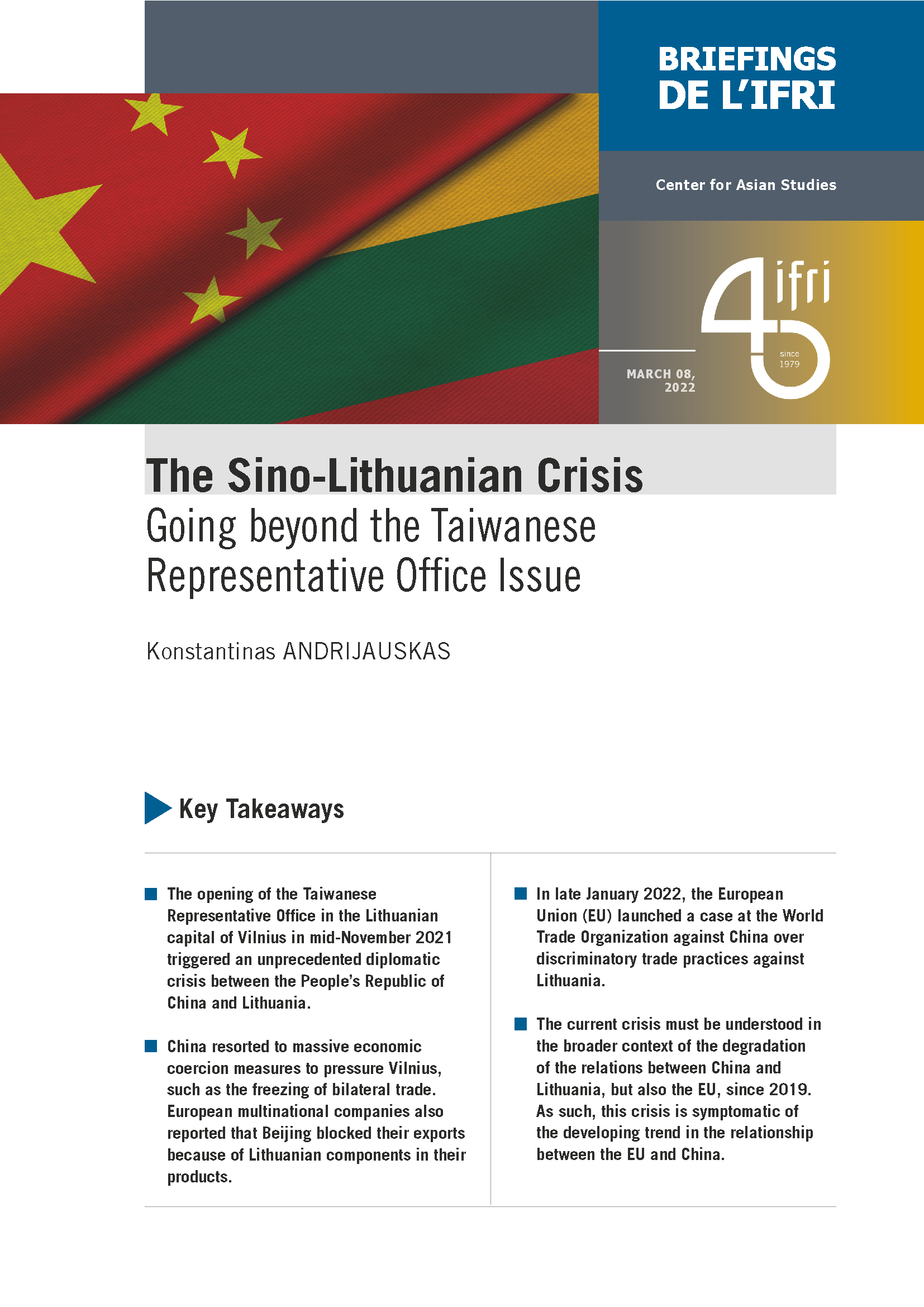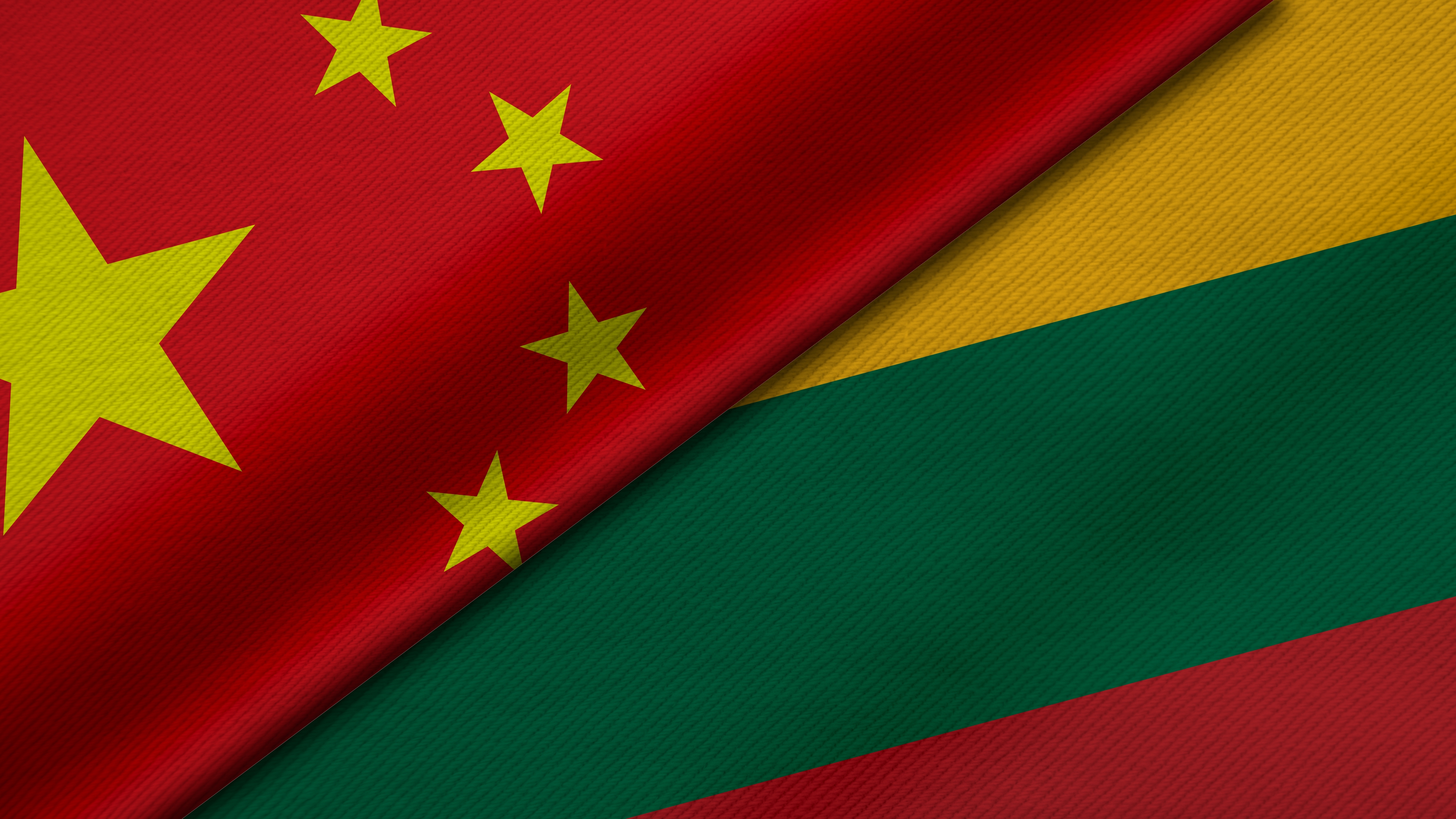The Sino-Lithuanian Crisis: Going beyond the Taiwanese Representative Office Issue

The year 2021 marked the 30th anniversary of the establishment of diplomatic relations between China and Lithuania. Instead of commemorative events and customary lofty rhetoric, the bilateral relationship rapidly plunged to a level rarely seen in either country’s foreign policies since the end of the Cold War.

Sino-Lithuanian relations remain de facto downgraded to the level of chargé d’affaires, Lithuania’s physical embassy in Beijing is empty, while the southernmost Baltic state continues to withstand China’s multidimensional campaign of diplomatic, discursive and, most importantly, economic pressure. The principal cause behind this diplomatic crisis was the opening of the Taiwanese Representative Office in the Lithuanian capital of Vilnius in mid-November 2021. This Briefing will argue, however, that there were other important reasons behind the current state of affairs that had been accumulating over the course of two years.
- The opening of the Taiwanese Representative Office in the Lithuanian capital of Vilnius in mid-November 2021 triggered an unprecedented diplomatic crisis between the People’s Republic of China and Lithuania.
- China resorted to massive economic coercion measures to pressure Vilnius, such as the freezing of bilateral trade. European multinational companies also reported that Beijing blocked their exports because of Lithuanian components in their products.
- In late January 2022, the European Union (EU) launched a case at the World Trade Organization against China over discriminatory trade practices against Lithuania.
- The current crisis must be understood in the broader context of the degradation of the relations between China and Lithuania, but also the EU, since 2019. As such, this crisis is symptomatic of the developing trend in the relationship between the EU and China.

Available in:
Regions and themes
ISBN / ISSN
Share
Download the full analysis
This page contains only a summary of our work. If you would like to have access to all the information from our research on the subject, you can download the full version in PDF format.
The Sino-Lithuanian Crisis: Going beyond the Taiwanese Representative Office Issue
Related centers and programs
Discover our other research centers and programsFind out more
Discover all our analyses
Opening up the G7 to South Korea to Address Contemporary Global Challenges
The G7’s global influence has diminished as powers like China reshape international governance through initiatives such as BRICS and the Shanghai Cooperation Organisation (SCO). With the G7 now representing just 10 per cent of the world’s population and 28 per cent of global GDP, its relevance is increasingly questioned.
Expanding SPDMM as a pivotal institution in the Pacific – A French perspective
The South Pacific Defence Ministers’ Meeting (SPDMM) is the only forum that brings together defense ministers from the wider South Pacific — including Chile, which is hosting it for the first time. This heterogeneous group of countries with varying resources, capacities, and interests — Australia, Chile, Fiji, France, New Zealand, Papua New Guinea (PNG), and Tonga — are united by their shared determination to strengthen cooperation on maritime security and humanitarian assistance and disaster relief (HADR) activities.
EU’s Derisking From China: A Daunting Task
With economic security as a major concern, the EU has recently turned to “derisking” from China. The EU strategy entails reducing critical dependencies and vulnerabilities, including in EU supply chains, and diversifying where necessary, while recognizing the importance and need to maintain open channels of communication.
Sri Lanka’s NPP Government. From System Change to Structural Compliance
In September 2024, a relative outsider to Sri Lanka’s two-party-dominated political system, Anura Kumara Dissanayake, won the presidential elections. The anti-establishment, populist movement he represented, the National People’s Power (NPP), went on to receive an overwhelming mandate in the November 2024 general elections, winning 159 seats in a 225-member parliament.








